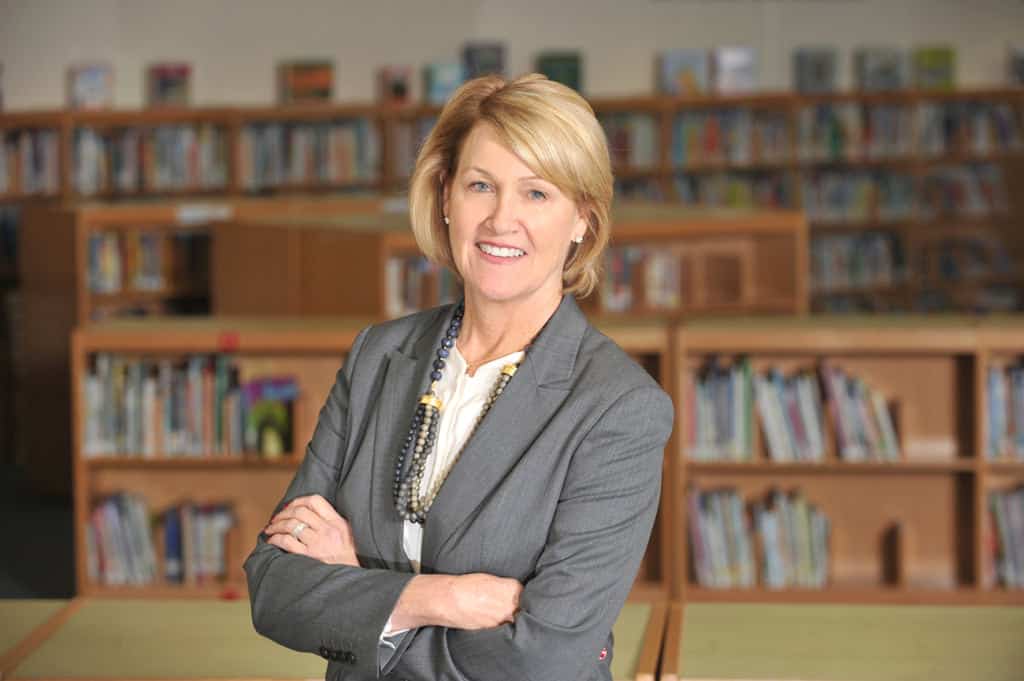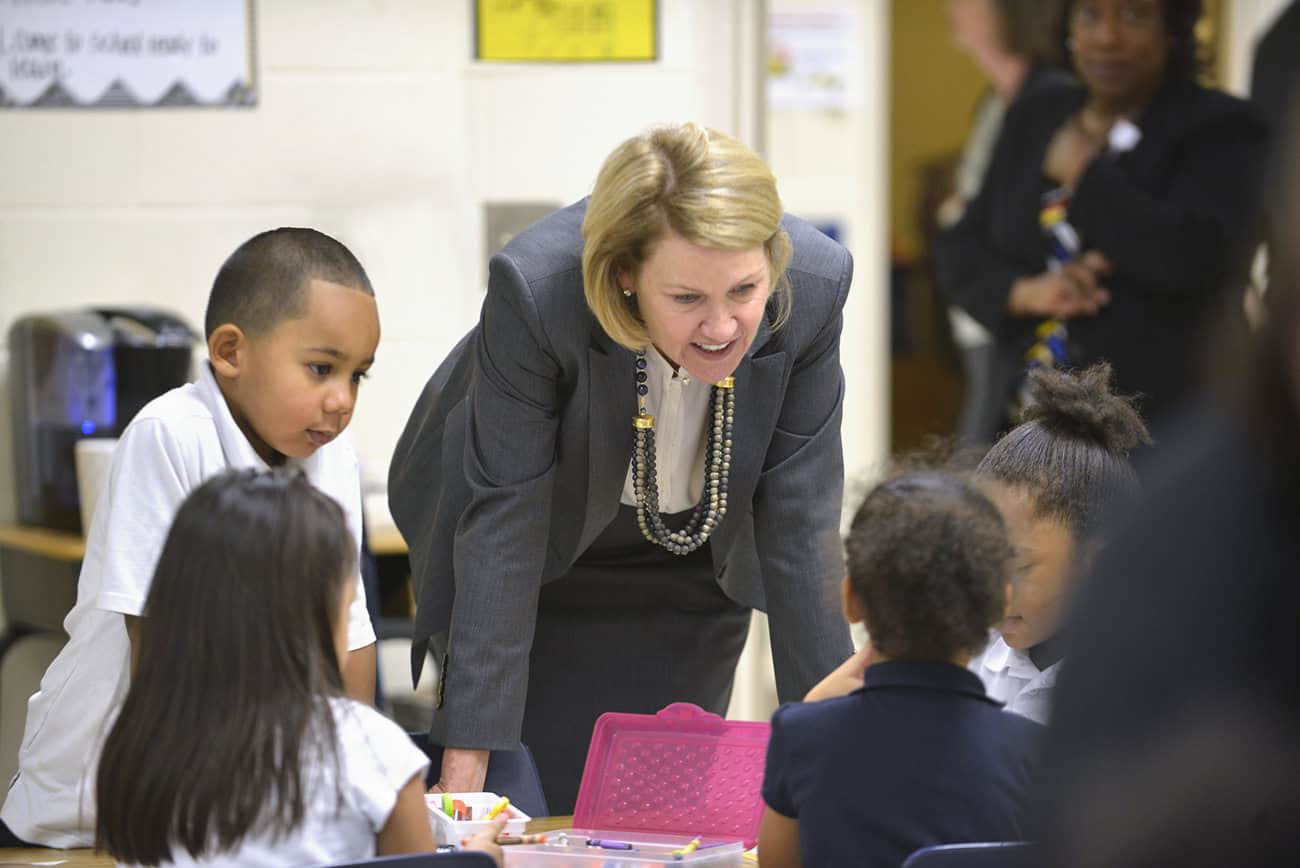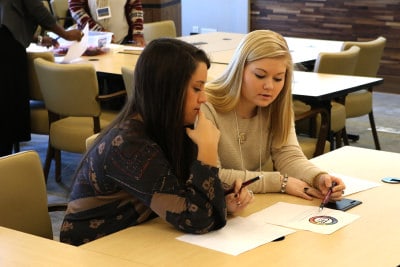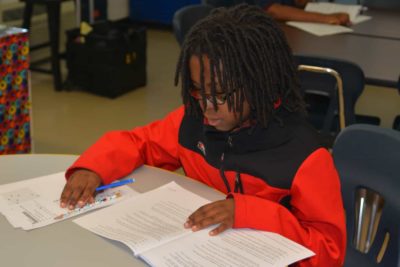Editor’s Note: The University of North Carolina Academic and University Programs Division releases its annual report this week. Great Teachers and School Leaders Matter surveys the work of the Division and UNC’s fifteen educator preparation programs that are focused on the University’s goal of preparing more, higher quality teachers and school leaders for North Carolina’s public schools. EdNC will be highlighting the report’s profiles of teachers, school leaders, programs, and partnerships from across the state as part of a nine-part series. The full report will be available Monday morning here.
To change and to improve are two different things. – German proverb
Improvement of K-12 public education through investments in early grade learning and quality teachers and school leaders are the focus of the Belk Foundation. Research and programs, including many from the University of North Carolina (UNC) system, inform the Foundation’s investments, partnerships, and advocacy.
In 2010, The Belk Foundation decided to examine and redefine the mission of the family foundation. “After over 80 years as a foundation with a broad mission, we asked ourselves: How much impact are our grants having and how will we measure this impact? What has changed in the world as a result of our grants?’ These were hard questions to answer. Since 1928, the Foundation has spent more than $60 million to support organizations doing important work across our communities. But when we looked across our multiple investments, we weren’t quite sure what social change they had actually accomplished. Once we realized that we did not know exactly what impact we were having, we knew we had to change.”
In response, Morris led the Foundation through a process of learning and evaluation. Research and analysis from the UNC system informed the Foundation’s realignment. The outcome? While there are many critical issues facing the communities in which the Foundation invests, the Foundation elected to narrow its focus to an area of great importance: K-12 public education. After three years of studying the field and learning from grantees and experts, the Foundation was compelled by evidence that providing young people with quality teachers and a solid base of achievement by the third grade impacts their lifelong success. Thus, the Foundation committed to focus its grantmaking on lasting improvements in these two critical areas.
In the examination process, “We looked at research and took a lot of time to talk with different thought leaders in the field. Of course that brings us to Chapel Hill, to UNC General Administration (UNC GA), and we’re very keen on the research that they’re doing on the field of teaching.”
The UNC Educator Quality Dashboard provides a robust source of information and research with easy access. In May of 2015, UNC GA launched the Dashboard as a way to extend research on teacher preparation to others. At the Foundation, Morris has used the Dashboard to better understand the state of teacher preparation and assess potential grant endeavors: “The UNC Educator Quality Dashboard is a game changer. It’s like none other in the nation. For the first time, we have information that we can look at that compares apples to apples.”
“The UNC Educator Quality Dashboard is a game changer. It’s like none other in the nation. For the first time, we have information that we can look at that compares apples to apples.”


Cutting edge research and data collection into the teaching profession has been taking place for years across schools of education, school districts, and other state agencies. Working together, the SAS Institute, UNC’s fifteen educator preparation programs, and the UNC system were able to bring it together in a public, interactive, transparent web-based tool. In addition to benefitting organizations like the Foundation, Morris has heard from deans of education how valuable the Dashboard has been for their faculty. “I was with a dean of a school of education recently. She created a scavenger hunt through the data to help faculty use and understand the Dashboard. One of the things that really caught their eye was that their graduates said they didn’t feel well prepared to teach English Learners. They all kind of had an ‘ah-ha’ moment there. Right on the spot, they brainstormed a strategy to fix the problem. [Data] helps us ask the important questions.”
At the Foundation, Morris and the board have been learning about different strategies to attract, develop, and retain teachers. They are seeing innovative work firsthand in classrooms. “We’re looking at real-time coaching, mentoring, and adaptive change. I was in some schools where I was just bowled over. They were doing real-time coaching right there in the classroom. A teacher was changing her methods as the coach helped her understand how she might approach a child differently and better. It’s pretty amazing. It’s just like what top companies are doing.”
“I was in some schools where I was just bowled over. They were doing real-time coaching right there in the classroom.”
The Foundation is committed to supporting and sharing best practices and models for developing, supporting, and retaining quality teachers in the profession. They look to the UNC system for research in action. The UNC system continues to be North Carolina’s primary source of new teachers, helping fill the state’s need for over 10,000 new teachers each year. These teachers are entering a profession under pressure from declining relative wages, a shifting policy landscape, and a curriculum in flux. But Morris and the Foundation see these pressures as opportunities for progress, “With the new federal legislation ESSA, we’re going to see innovation, and we’re all going to be adapting and changing as we go. The emphasis that the UNC system is putting on doing research on what works, being transparent and sharing it, matters for the whole state.”
At the NC New Teachers Support Program, a partnership between UNC GA, educator preparation programs, and school districts, instructional coaches are paired with first-, second-, or third-year teachers in high-need schools to provide individualized classroom coaching and professional development. The program has registered meaningful gains in teacher retention and student performance. As Morris observes, “the first few years of teaching are very difficult. Often, not what people expect, especially if they haven’t spent much time in a classroom actually applying what they’ve learned to the experience. That support, mentoring, and coaching makes a world of difference.”
Bolstered by research, the Foundation is committed to asking good questions and advocating for quality public education. As Morris describes, “If it hadn’t been for this research and review, we might have continued to fund all kinds of different things, not really knowing our impact.” The focus on teachers as the most important in-school factor for students achievement, Morris says, has helped the Foundation realize “just how large the opportunity is for impact.” The teaching profession – and future generations of students – can only benefit from the Foundation’s ongoing commitment to its mission.
Great Teachers and School Leaders Matter Series
Part 1: Introduction
Part 2: Katie B. Morris
Part 3: Yolanda Black
Part 4: Jeff Vamvakias
Part 5: New Teacher Support Program
Part 6: Diana B. Lys
Part 7: Steve Lassiter
Part 8: Chase Schultz





